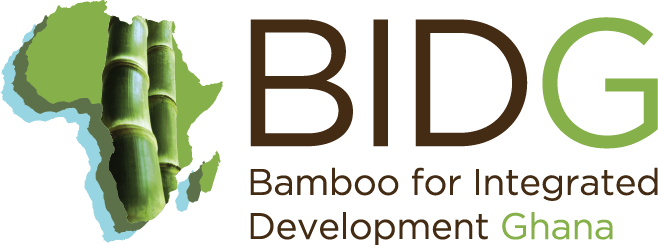Sekyere Afram Plains Resilient Bamboo Agroforestry Programme
Presently, 81.4 percent of households according to the 2010 population and housing census in the Sekyere Afram Plains district are engaged in Agriculture. This means almost all households depend on crop yields for sustenance.
Agricultural practices in the district unfortunately focuses on mono cropping. Forest for this reason is cleared to make way for agriculture which a main driver of deforestation. Biodiversity is often neglected at the expense of environmental quality. The present agricultural practice in the young Sekyere Afram Plains district focuses on the mono cropping of maize which easily leads to soil and land degradation.
The rural farmer currently depends on agrochemicals to ensure optimal yields. Seasonal acquisition of these chemicals cut into their profits and are not sustainable. It therefore creates dependencies and reduces post-harvest gains drastically. There is the need to improve the productive and regulatory functions of our farmlands.
We seek to convert slash and burn farmers in the Sekyere Afram Plains district into bamboo Agroforesters. We are materializing this vision by Starting a 10 Ha nursery near Babaduaso, which is the first of its kind. Our nursery will produce quality seedlings and in the second phase of the project gradually roll out into a 1000 Ha demonstration farm.
Proof of this concept has been delivered by our technology transfer partner organizations; The Environmental Bamboo Foundation and The Ministries of Environment and Forest in Indonesia. The primary beneficiaries of the project are local communities, stakeholders and the district government.
Bamboo for Integrated Development, Ghana will;
· Create a bamboo restoration economy by first establishing a 10 Ha nursery and gene bank within the project area (Babaduaso) to facilitate the production and distribution of seedlings to our demonstration farm and out growers.
· Sensitise farmers on the benefits of Bamboo Agroforestry and encourage them to join our out growers scheme.
· Convert slash and burn farmers to Agro foresters. Hold focus group discussions and workshops to educate farmers on good agricultural practices and the adverse effects excessive wood exploitation for charcoal production (deforestation) that causes further land degradation.
· Train stakeholders in basic bamboo clump management practices.
· Further secure more tracts of land trough the traditional council to establish a bamboo agroforestry demonstration farm which will directly and indirectly engage rural folks.
· Train farmers in culm treatment and basic bamboo value chain processing (such as Bamboo charcoal production and construction methods).
BIDG foresees a restored Sekyere Afram Plains district through;
· Regenerating and restoring degrading cultivated soils
· Reduced deforestation
· Ensured food security
· Increased biodiversity/ Risk management
· Safeguarding and enhancing the availability of substitutes for wood products and other NTFP`s (Non Timber Forest Products)
· Livelihood improvement through alternative income generation from marketing and processing of quality bamboo culms.
· Reduced dependencies and poverty.
Kwahu Altitude Trials
The Kwahu plateau is a 260 km long plateau stretching through the Ashanti, Eastern and Volta Regions of Ghana. It forms the main watershed of Ghana, separating rivers in Ghana’s Volta River system from rivers in the western half of Ghana.
The plateau has an average elevation of 457m and its highest point is Mount Akmawa at 788m. The plateau is dissected by several valleys and is marked by tall peaks with the largest and most important towns on the Kwahu Plateau being Wenchi, Mampong, Mpraeso, and Abetifi.
Gudua angustifolia is a bamboo species documented to thrive on high altitudes. BIDG’s research team is experimenting this species on the Kwahu plateau to study its growth rate and viability. We will implement Agroforestry systems with this species together with local communities after successful trials.
BIDG employs local hands, providing gainful employment for the people of Mpraeso. We also educate employees on the benefit of cultivating bamboo and Bamboo Agroforestry as a system.
Bamboo Vinnegar Preservation Trials
Write in the text box.




